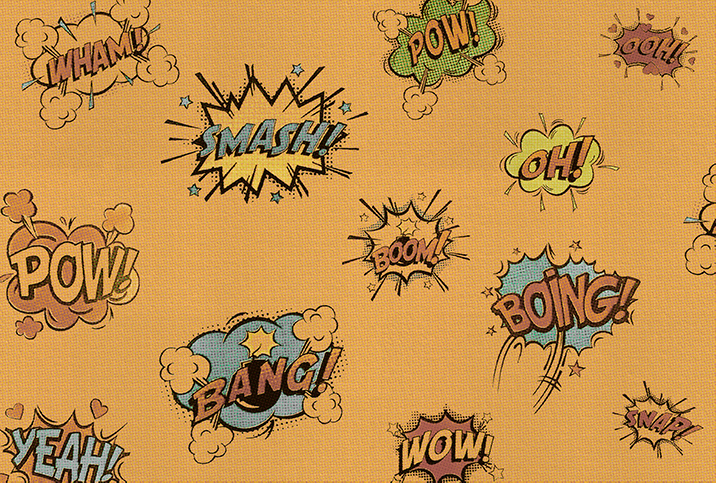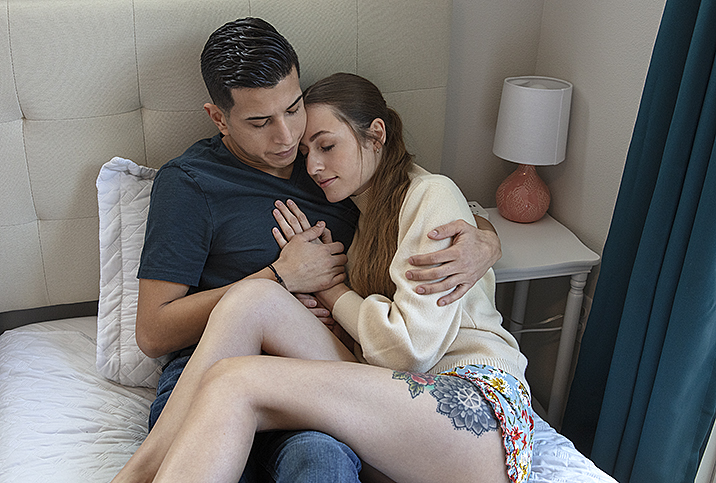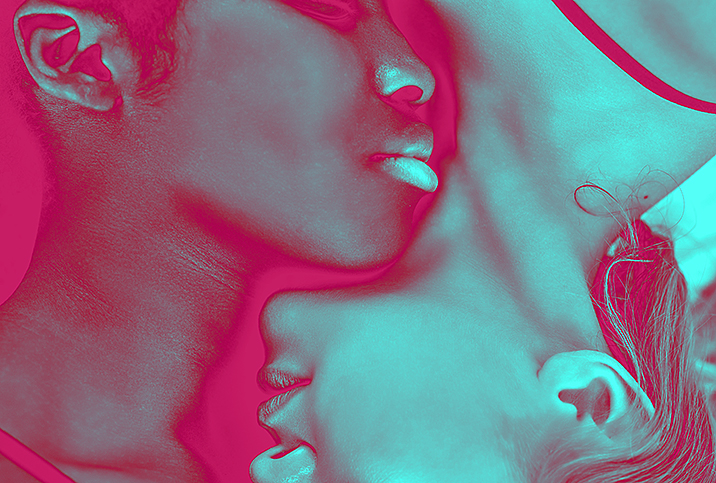Why Is Hookup Culture Making Some of Us Miserable?

After swapping a handful of messages via OkCupid, Ted*, 31, and I met for a drink on the string light-lit back patio of a cocktail bar in East Austin. He was a tall, well-dressed software developer who'd taught himself to code after dropping out of architect school. Despite his blue-collar, conservative upbringing in Fort Worth, Texas, he voted Democrat and listened to Lord Huron and Neon Indian and Cardi B.
Even though he made it a point to not pay for my drinks, I agreed to go on a second date (to see the movie "Max Max: Fury Road," a ticket he also did not pay for) and had sex with him on the requisite third date (when we had a Cinco de Mayo dinner and margaritas and split the check).
In the following weeks, Ted and I would continue to hang out and have sex. Things were going pretty OK. Sure, we hung out sparingly, and when we did he monopolized the conversation and kept inviting me to bars I couldn't afford. But he was reasonably fun and intelligent (and did I mention tall?), and he made me feel hot because, sometimes, during sex, he would exclaim, "You are so hot!"
He was cool, I was cool. We were just a couple of cool people having cool-people sex. I was busy, too, after all—far too busy for a committed relationship. Unless, of course, that's what he wanted, and then I'd probably consider it.
About five or six weeks after we first hooked up, Ted went on a camping trip and disappeared. The last text I sent him—"Did a bear eat you lol," eloquent in its brevity—never got a response.
In the three or so months it took me to accept I'd been ghosted, I agonized. My heart leaped with every cellphone vibration, certain it'd finally be a text from Ted explaining he had indeed been robbed of his cellphone by a hungry bear, but he'd made a full recovery and was awfully sorry and would I like to go get snow cones, his treat?
I re-read my last text message, wondering if my "playful" tone had betrayed neediness or insecurity. I mentally replayed our last sexual encounter, wondering if I'd come across as too slutty or forward or—worst of all—clingy.
A relationship pattern
While I wish I could say my experience with Ted was an outlier, I'll reluctantly admit that many of my adult "relationships" follow the exact script.
Boy asks me out. After the obligatory three dates, the boy and I hook up for a few weeks to a few months. I am careful not to use words like "boyfriend" or "exclusive" because I am not one of those crazy girls who need you to marry me. (Unless, I mean, you want to get married?) Six weeks to several months pass, contact fizzles out, and I bolt to my phone every time it buzzes for as long as it takes to start dating someone who is equally or more attractive.
At the end of this exhausting sequence, I find myself in the same place: heartbroken, lonely and mad at myself for failing at being a sexually liberated woman. Why did I have to "catch feelings?" Why couldn't I have sex and discard men with the kind of ruthless abandon Nelly Furtado's "Maneater" suggested? Why did I suck at hookup culture? Why was hookup culture making me miserable?
What is hookup culture?
Hookup culture—the shift in openness and acceptance of uncommitted sex—is the latest stage in the slow evolution of sexual norms and behavior among emerging adults in the Western world.
While moralizers and the media tend to characterize hookup culture as chaos and abandon—a haphazard series of one-night stands—the hookup culture trend isn't really about young people having lots of sex or multiple sexual partners. In fact, Millennials and Gen Zers are having less sex and with fewer partners on average than their Gen X and Baby Boomer parents—according to research from the Archives of Sexual Behavior.
Rather than an increase in sexual excess, the rise of hookup culture refers to a shift in sexual behavior—specifically, the movement of sexual activity outside of relationships—or a hookup.
"Hookup culture is basically an atmosphere where people are having casual sex," said Tyomi Morgan, a Chicago-based sexologist. The hookup is an intentionally ambiguous form of sexual intimacy, ranging from kissing to vaginal or anal sex, and everything in between.
Morgan said hookups don't have to be a one-time thing. Hooking up can involve having consistent, regular sex for weeks or months or years.
According to Morgan, there is really only one fast, albeit unspoken, rule of hookup relationships: "No hard commitments. There's no romantic intimacy. It's just all about the sex and having fun and being free with no strings attached."
Where did hookup culture come from?
The origins of hookup culture are traced back to the women's movement and the sexual revolution.
"The women's movement wanted two things for women, both sexually and otherwise," said Lisa Wade, a sociologist at Tulane University in New Orleans and author of "American Hookup: The New Culture of Sex on Campus," in a 2017 NPR interview. "So the feminists succeeded in convincing America, for the most part, that women should be allowed to do what men do and even have masculine traits. But we never really got around to valuing the things that we define as feminine."
Many parents encourage their daughters to mix masculine traits and interests into their personality, according to Wade.
"We're excited when she likes to play with engineering toys when she's a kid. And we're excited when she chooses sports over cheerleading. And we're excited that she decides to major in physics instead of education," she said.
Rewarded all their lives for acting how a stereotypical man does, many women try to approach sexuality the same way, Wade said.
"We hear it in the songs all the time: 'You a savage' or 'Slaying bitches with a dick,'" Morgan said. "[Emotionless sex] is seen as machismo and I think it has everything to do with the patriarchy. It's really a male trait that women have decided to take on because of how men have just been using and discarding us for so long."
If this is liberation, why am I so unhappy?
Unfettered from the shackles of morality and abstinence before marriage, my fellow women and I are free to have sex—emotionless, connectionless sex when we're even less likely to orgasm.
And yet, I was still miserable—and I wasn't alone. In her senior thesis about hookup culture, then-student-now-culture-writer Leah Fessler interviewed 75 students and analyzed more than 300 online surveys from students at Middlebury College. She found that 100 percent of female interviewees and three-fourths of female survey respondents stated a clear preference for committed relationships. Only 8 percent of about 25 female respondents who said they were presently in casual "hookup" relationships reported being "happy" with their circumstance.
Other studies consistently align with Fessler's findings. A 2012 Review of General Psychology analysis of recent hookup datasets concluded "both men and women had experienced some sexual regret, but the frequency and intensity of negative reactions appeared to vary by sex, with women more negatively impacted from some hookup experiences."
The negative reactions experienced by women included depression, anxiety, low self-esteem, embarrassment and loss of self-respect, to name a few.
Our brains on hookups
"Women tend to feel more regret after the hookup because we're typically a little more emotionally inclined and we internalize things," Morgan said, noting the physiology of being penetrated might have something to do with this.
The idea that women might struggle a little harder than men to separate emotion from sex might be an unpopular one, but there's science to back it, Morgan pointed out:
During sex, both men's and women's brains release oxytocin—the "love" hormone responsible in part for creating feelings of trust and bonding. At orgasm, male oxytocin levels quintuple—but this is nothing compared to female oxytocin levels, which become stratospheric at peak sexual arousal.
Some women feel forced to participate in hookup culture
So if women like myself aren't having fun and—even worse—are getting saddled with short-term hurt and long-term mental and emotional consequences, why do we participate in hookup culture?
Women who don't enjoy casual sex really have two options, according to Wade.
"One is that they don't participate in any sexual activity at all, which also means never getting into any sort of romantic relationship with someone," she said. "The other is passing through this period with a person, the hookup period, with the hopes of coming out the other end as that person's girlfriend."
Research suggests that while many women go into hookups hoping it will progress to a traditional romantic relationship, most men do not. In a 2013 study from The Kinsey Institute of Research in Sex, Gender and Reproduction, 42.9 percent of women participants admit wanting a traditional romantic relationship as the result of a hookup. Only 29 percent of men reported being interested in the same outcome.
For all the talk about freedom and women's liberation, heteronormative hookup culture tilts the power dynamic in men's favor. In a scenario where a woman wants something more and the guy isn't so sure, it often falls to him to decide whether a hookup progresses to a relationship.
"Engaging in hookup culture while wholeheartedly craving love and stability was perhaps the least feminist action [we] could take," Fessler wrote.
"We're not being true to ourselves, we're not being honest with ourselves when we try to play this game," Morgan warned. "We're pretending, 'Oh, I can be emotionless. I can hook up and not be hurt or feel some type of way.'"
She warned that adopting the "I-can-hook-up-and-not-feel-hurt-or-some-type-of-way" strategy, in addition to being dissonant with our body's biological desires and dishonest, has other consequences, too.
"If you are actively choosing to close your heart off, to shut your emotions off, it's going to be difficult for you to connect with somebody intimately when you're ready," Morgan said. "And it's going to make it difficult for you to see red flags because you're not tapping into your emotional body. So when women think it's a sign of strength to not tap into your emotions or to feel emotions, it's actually weakening you. It's hurting your intuition."
*Names have been changed.



















Commentary